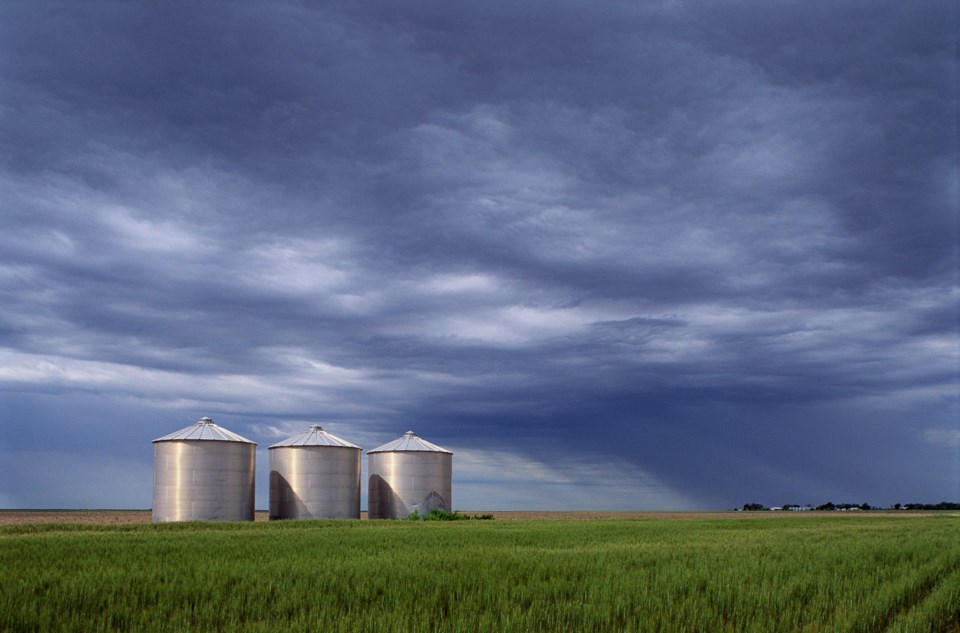Every so often as a reporter, you come across a particular term or buzzword that just sticks with you for one reason or another, firmly lodged in the back of your psyche until something jostles it loose. This municipal election campaign brought my own personal pet term back to the fore of my mind: siloes.
In an interview about her campaign last month, Whistler council candidate and forest ecologist Rhonda Millikin mentioned wanting to “remove the siloes” in the Resort Municipality of Whistler’s (RMOW) decision-making, using wildfire mitigation as an example of how interconnected so many of the issues facing the resort truly are.
It’s in this context that you commonly hear about Whistler’s siloes, and this election season was no exception. Much of the talk from candidates about what is arguably the community’s longest and most complex challenge—housing—touched on how far solving this years-long puzzle would go towards soothing Whistler’s other urgent woes, be it our worsening staff shortage, mental-health crisis, climbing GHG emissions or steep cost of living. Knock down one domino, and the rest will fall, or so the thinking goes.
But the push to break through Whistler’s siloes stretches back further than just this election cycle. In a 2017 interview with Pique, Paul Mathews, president and founder of internationally renowned EcoSign Mountain Resort Planners, talked about the important role then-outgoing Whistler Blackcomb (WB) COO Dave Brownlie played over the years in bringing together the resort’s various powers that be, namely the RMOW, Tourism Whistler and WB.
“They’d talk to each other occasionally, but they didn’t share any numbers, they didn’t sit down—unless it was in an argument. It was to each his own,” Mathews said.
“Dave is the first president or CEO of Whistler Blackcomb that was so fully engaged with the community, in my mind, and has created this tripartite agreement of how we guide the ship, with three hands on the tiller.”
The siloes Mathews referred to are of course political in nature, but this election season got me thinking about the other kinds of siloes that exist here as well. The general lack of youth voices at any of the all-candidates meetings is a great example of the kind of social and cultural barriers that keep Whistler’s disparate communities from talking to each other in meaningful ways. There’s no denying that the biggest issues facing the resort affect our young population the most—the seasonals, the front-line workers, the van lifers—and yet, it’s the same grey-haired crowd that usually ends up coming out to these things, which of course ends up transferring over to the ballot box on election day.
There are few places in Canada where the chasm between the established and the emerging is more pronounced than in Whistler, and baked into the community’s very ethos is this expectation that you have to suffer through certain rites of passage just to be accepted as a true local, whatever the hell that means. As Whistler Community Services Society executive director Jackie Dickinson told me in a recent interview, paraphrasing popular Hungarian-Canadian physician and author, Dr. Gabor Maté: “We’ve normalized inequality,” she said. “We’ve just made it normal for people to struggle, to experience inequity, to not be able to live in certain places, to see all these disparities within our system.”
Although Dickinson was talking about society in general terms, the “work-hard, play-hard” mentality of Whistlerites, no matter how well intentioned it may be, only serves to further entrench this norm. Why would I ask for better from my elected officials if I’ve convinced myself suffering is a natural part of my Whistler experience? Why would I involve myself in a community that doesn’t seem to care if I succeed?
Whistler, as we all know, only functions when every spoke of the wheel is in place. And while I have no illusions that we are going to wave our wand and magically resolve decades of growing inequality overnight, there are other ways we can break through the siloes. First and foremost, it’s about having more of the multi-generational community hubs that Whistler has for so long been known for. Whether it was the Rainbow Lodge of the 1920s or the Racket Club of the 2020s, Whistlerites need and should have these cherished “third places” to connect and commune, complain and cavort.
I think it’s part of the reason why the Racket Club lobby has come out with such force this election: they saw first-hand during the pandemic the value of having a place where locals of all stripes could get together and play. Now, do I think the Racket Club and the Northlands rezoning should have dominated this campaign as much as it did? Absolutely not, and those stubborn one-issue voters who are unwilling to accept the club’s relocation—practically a fait accompli at this point—at the expense of desperately needed health-care and daycare space at the upcoming Northlands development should shake their heads out of their own personal siloes. But I can also understand that the issue is about so much more than just pickleball; it’s about a community that has watched its social fabric fray at every corner as the few remaining public spaces not asking for your money to be there disappear with every passing year.




